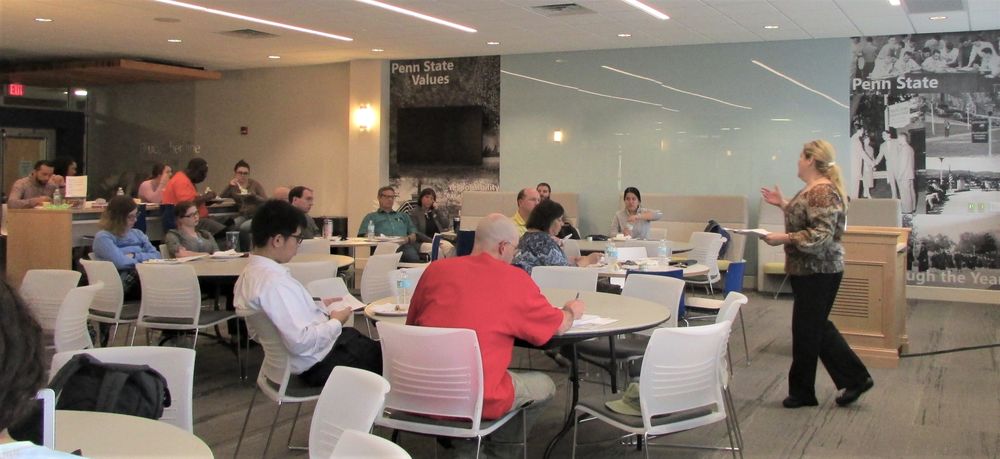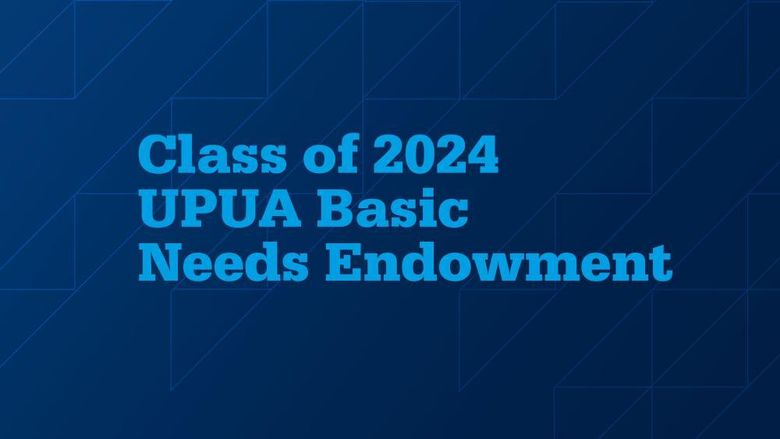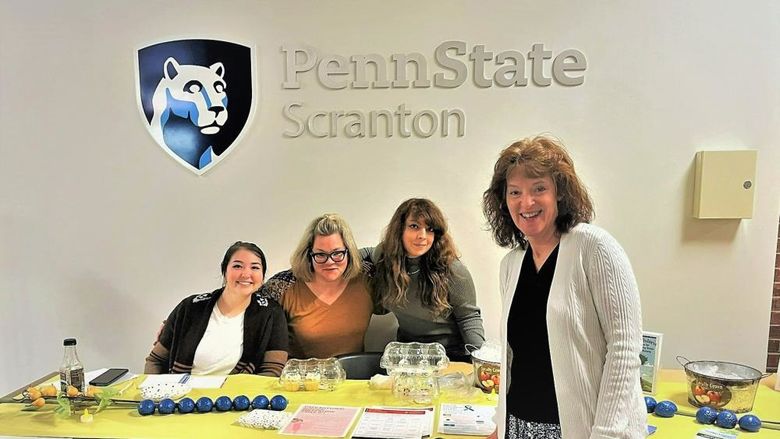
Kathy Stefanelli, campus counselor, was the guest speaker at the Human Development and Family Studies Club's recent event on Suicide Prevention and Awareness, where she shared information on how to recognize someone suffering from depression, as well as campus and community resources available to anyone that may be in need of help.
DUNMORE, Pa. — In recent years, suicide has become a growing scourge on college campuses across the country. But with more education, vigilance and resources, there’s no reason why those numbers can’t dramatically plummet.
That was the takeaway from the Penn State Scranton Human Development and Family Studies (HDFS) Community Club’s first educational awareness event of the 2019-20 academic year.
At the lunchtime event, campus counselor Katherine Stefanelli presented a program centered around suicide prevention and awareness.
The program began with a screening of the short documentary “It’s Real,” which featured brave firsthand testimonials from college students who have struggled with suicidal thoughts but eventually sought help despite the lingering stigma associated with mental health disorders.
“These are real college students talking about their struggles. Their stories are more poignant than the statistics I’m going to throw at you,” said Stefanelli, now in her second year as the campus’ first full-time campus counselor.
Nonetheless, the statistics are worth noting, given the gravity of the issue. According to Stefanelli, suicide is the second-leading cause of death among young people ages 15 to 24.
Meanwhile, young people within the LGBTQ community are three times more likely to hurt themselves when bullied, she noted.
“Obviously, mental health is highly relevant when talking suicide prevention,” Stefanelli said. “For people who suffer from depression and anxiety, there is hope for them, because these illnesses are highly treatable.”
Of course, in order to prevent suicides among young people, it’s important to know the steps you can take to help them, Stefanelli said.
She passed out an informational hand-out from the National Association of School Psychologists listing the risk factors (hopelessness, self-injury, prior suicide among peers or family members, etc.) and warning signs (direct and indirect suicidal threats, preoccupation with death, drug and alcohol abuse, etc.) associated with suicidal thoughts.
The hand-out also dealt with how to approach someone experiencing suicidal thoughts. Among other things, one should remain calm and nonjudgmental, ask directly about suicide, focus on having concern for their well-being, and, of course, assure them that they can be helped.
“It’s important to know how to be a helpful bystander and be there for someone,” Stefanelli said.
In addition, Stefanelli implored students in the audience to seek out her services if needed. She provides one-on-one short-term individual sessions to students, as well as referrals for higher levels of care if needed.
Appointments can be made in advance in her office in SLC 22, or via email at [email protected]. Urgent, crisis-related appointments are available by walk-in.
Stefanelli also offers campus consultations to staff and faculty via outreach efforts and classroom presentations on timely behavioral health issues. And, staff, faculty and parents may make a referral to her at any time if they become concerned about the emotional health of a student.
However, if someone experiences someone having an immediate crisis and is in danger of harming themselves or others, or threatening suicide in the moment, call 911 for immediate emergency help.


